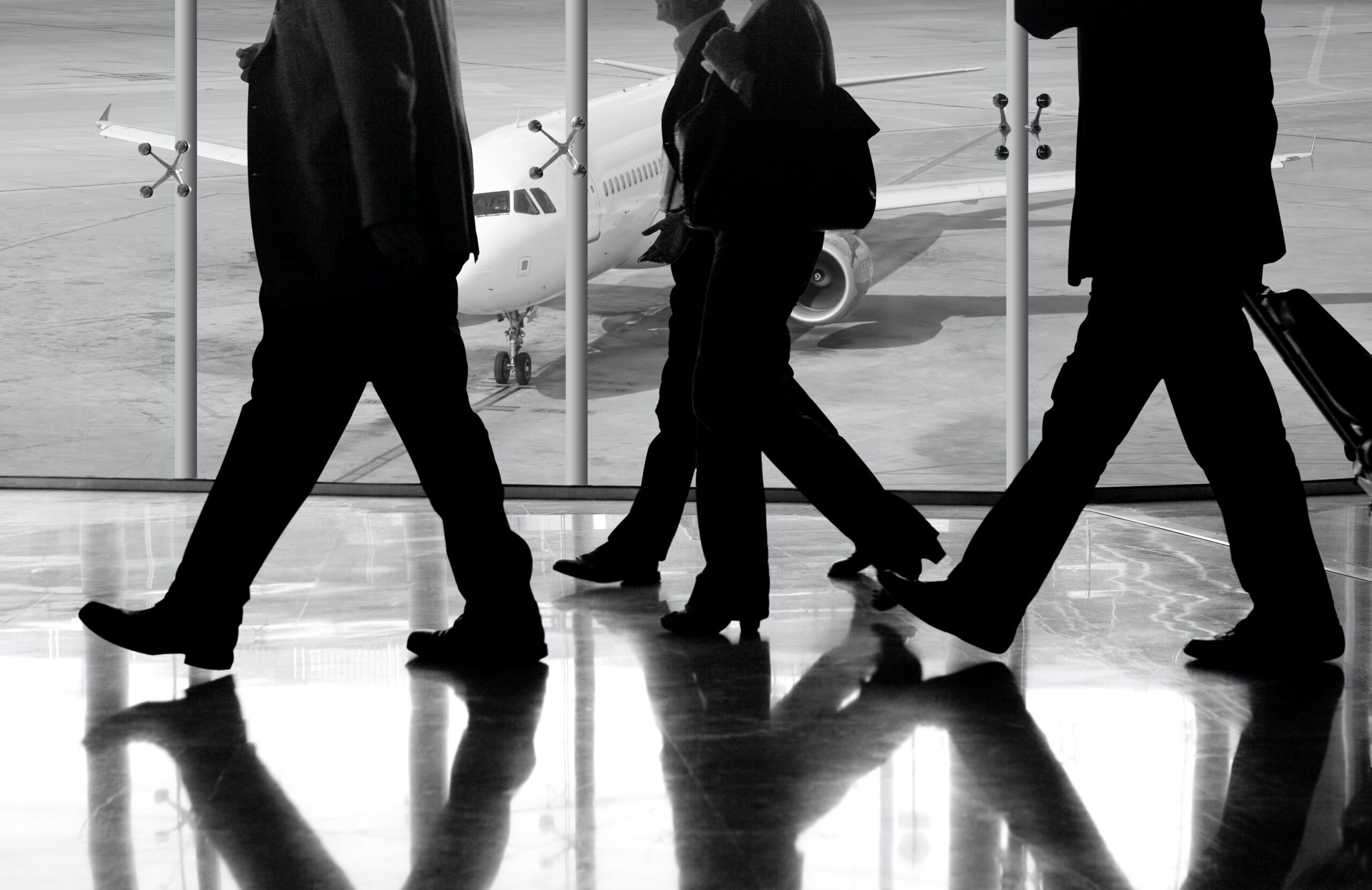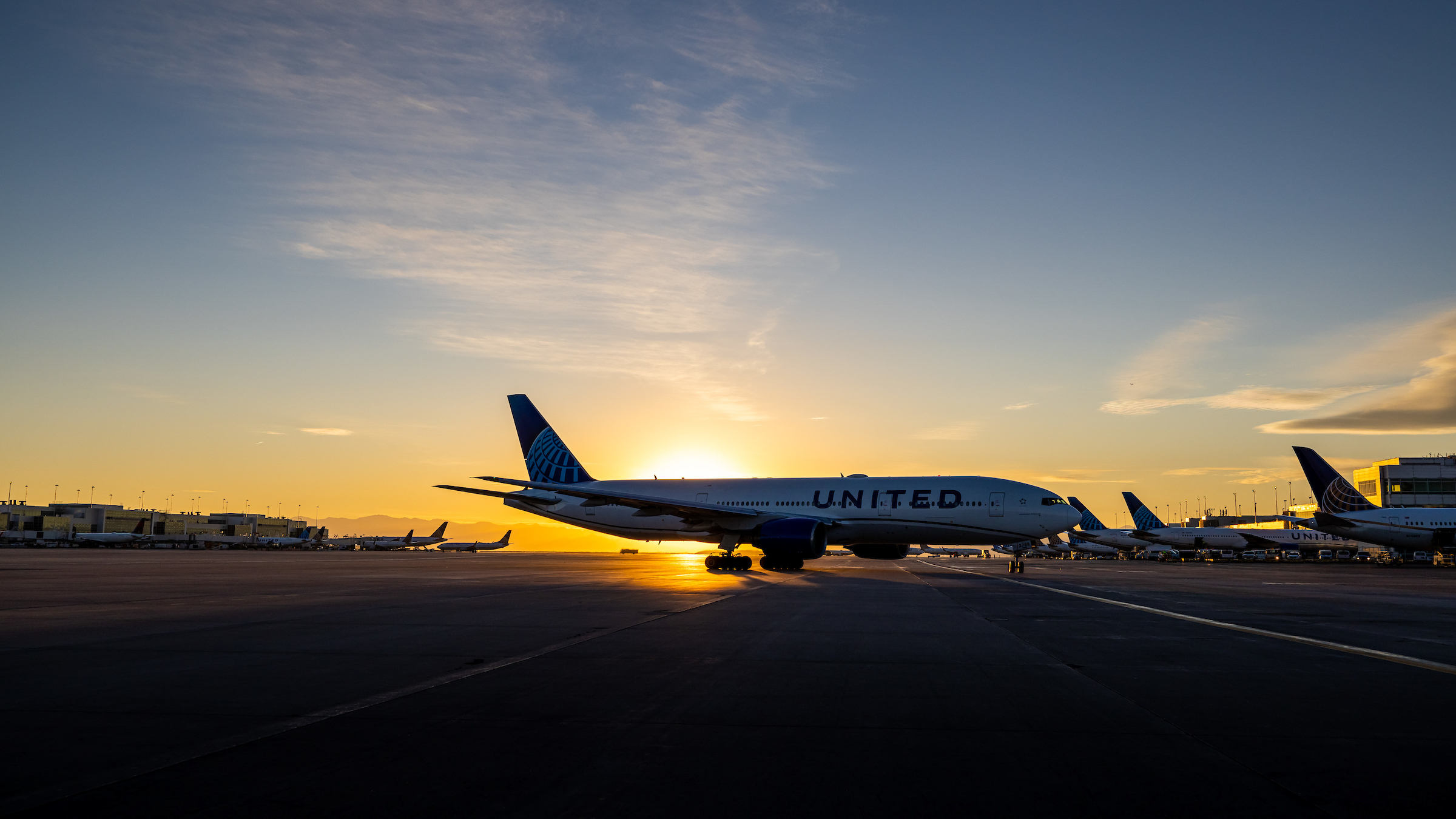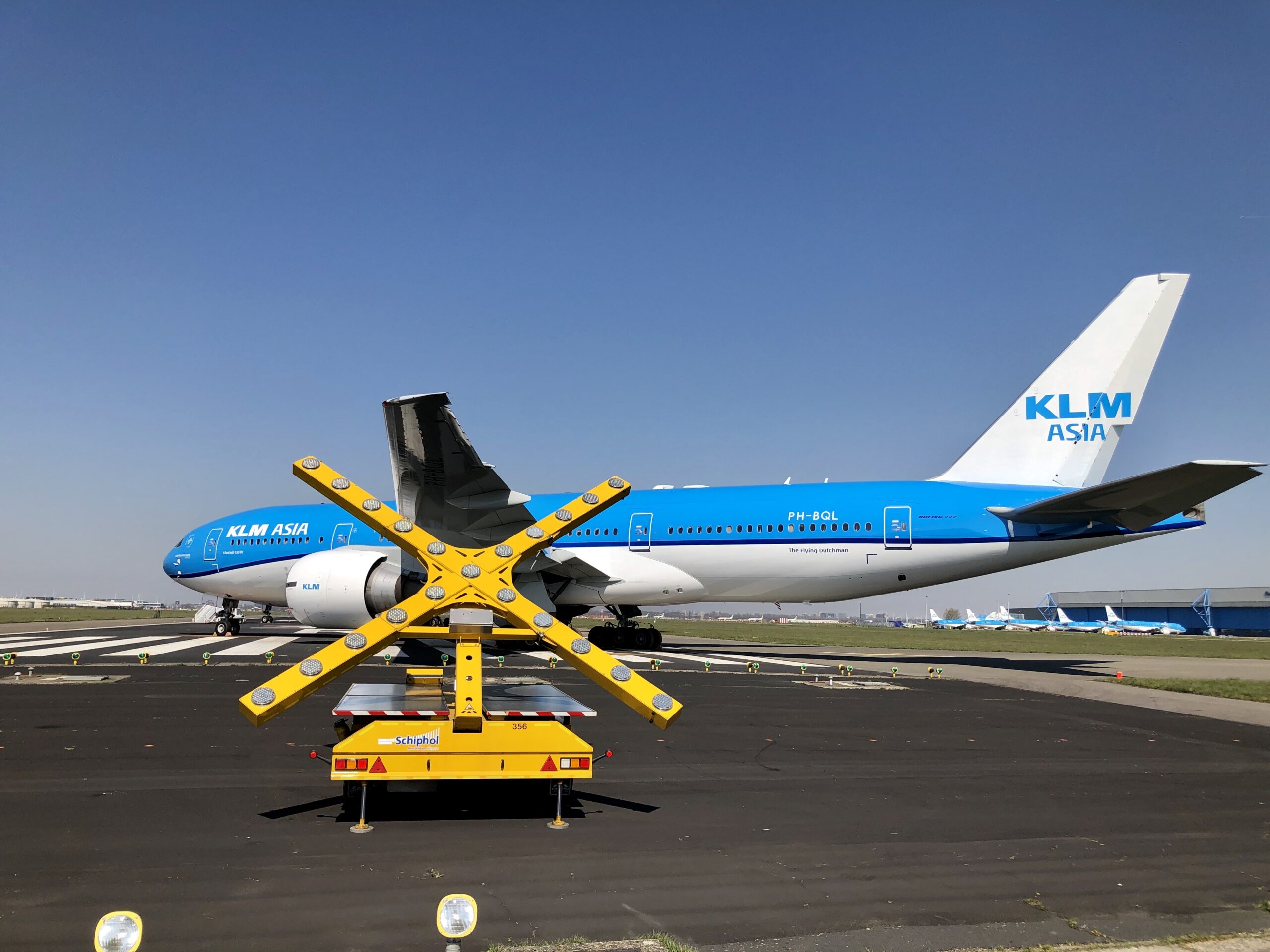United Introduces Industry-First Wheelchair Filter for Safer Travel
The airline will update its online platform early next year to allow disabled passengers to find flights that can accommodate their needs based on the size of their personal wheelchair
by Lauren Smith
October 11, 2023

Photo: Courtesy of United
United Airlines will introduce new tools and policies to make air travel safer and easier for wheelchair users following an investigation by the Department of Transportation (DOT) into the carrier’s tragic mishandling of a passenger’s wheelchair in 2021.
From early next year, a new filter on United.com’s flight finder will allow travelers to enter the dimensions of their personal wheelchair as part of their search and be directed to flights using aircraft that can accommodate their wheelchair.
Some aircraft, especially regional planes and single-aisle jets, have smaller cargo hold doors and can’t safely fit larger motorized wheelchairs, which must be transported upright.
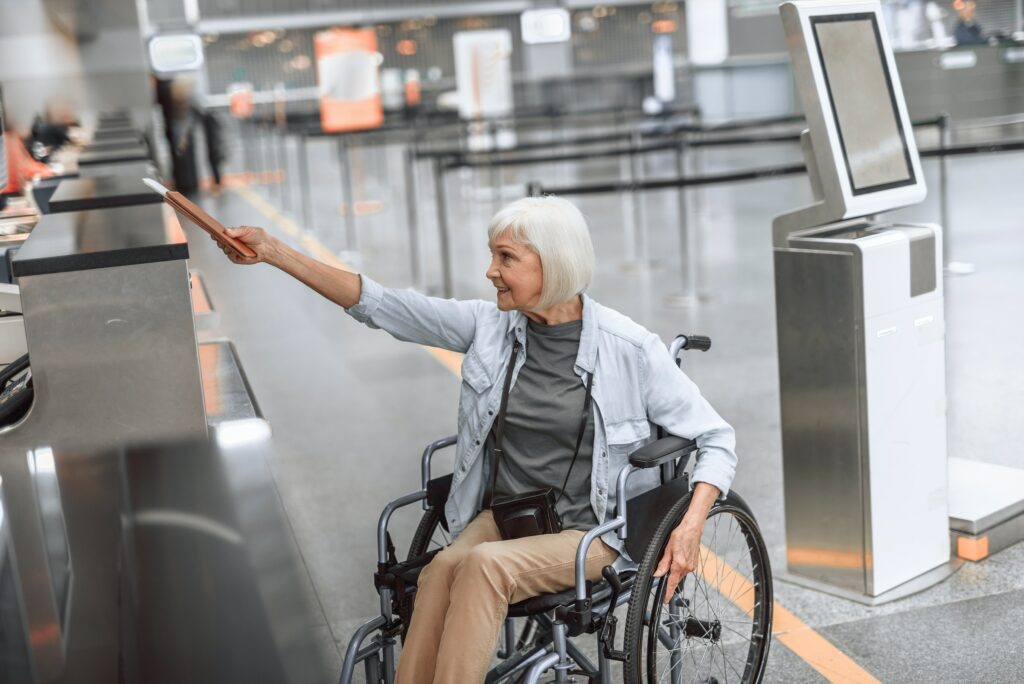
Photo: Courtesy of Getty Images
If passengers are forced to book a more expensive flight because their preferred choice can’t accommodate their wheelchair size, United will refund them the price difference.
“By offering customers an easy way to know if their personal wheelchair fits on a particular airplane, we can give them the peace of mind they deserve when they fly with us,” said Linda Jojo, Executive Vice President and Chief Customer Officer for United. “Plus, collecting this information beforehand ensures our team can handle these special items properly.”
United handled around 150,000 wheelchairs last year.
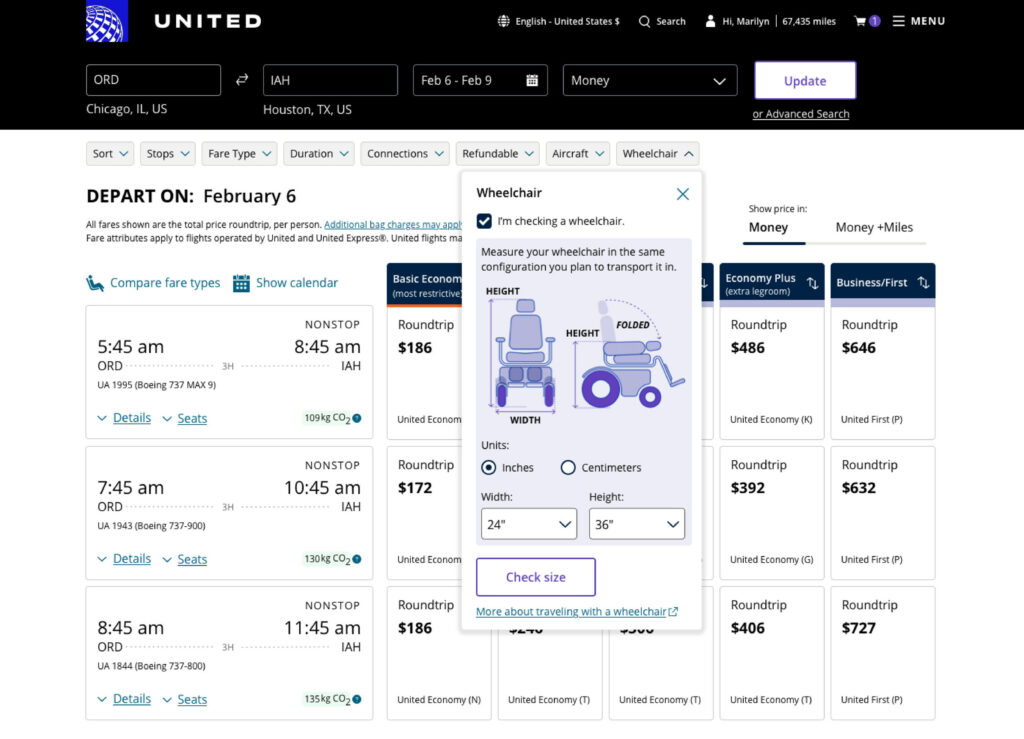
Photo: Courtesy of United
The airline is introducing the filter, an industry first, as part of a settlement resolution with the Department of Transportation over a complaint lodged by passenger Engracia Figueroa.
Figueroa’s custom $30,000 wheelchair was damaged during a United flight from Washington, D.C., to Los Angeles in July 2021. Her wheelchair, designed to support her body following a spinal cord injury and leg amputation, arrived “bent backward and completely broken,” according to a statement from Hand in Hand, a disability rights group.
Figueroa was forced to spend five hours at LAX filing a report with United, sitting in a temporary manual wheelchair that didn’t adequately support her.
She developed a pressure sore, which worsened as she used an ill-fitting loaner wheelchair while waiting weeks for United to repair her damaged wheelchair. The infection spread to her hip bone, and after emergency surgery failed, Figueroa died on October 31, 2021.
DOT highlights repeated incidents
The incident sparked outrage and drew headlines, but activists said that Figueroa’s experience is all too common.
According to figures from the DOT, last year, the ten largest U.S. airlines mishandled 11,389 wheelchairs and mobility scooters, or 1.54% of those they transported.
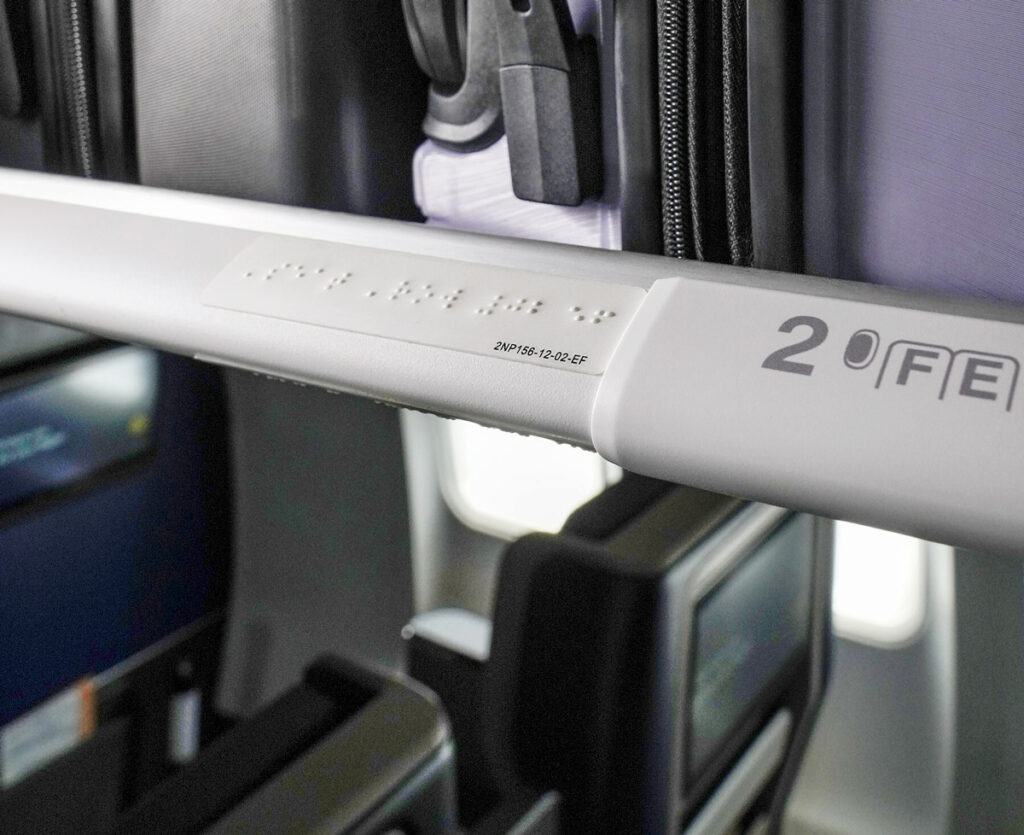
Photo: United also installed Braille signage inside its planes to aid visually impaired passengers. Courtesy of United Airlines
As part of the settlement with the DOT, United will also launch a six-month pilot program at Houston’s George Bush Intercontinental Airport (IAH), exploring ways to improve the experience of passengers whose wheelchairs are damaged or delayed during flights. This may include offering specialized seating at the airport or covering the passenger’s travel if they decide to wait elsewhere.
The carrier will also solicit feedback from passengers checking wheelchairs and take it into account when developing and refining its procedures for handling mobility aids.
The DOT said that United has agreed to measures that go “above and beyond” federal accessibility requirements. The DOT’s Office of Aviation Consumer Protection will close its investigation into the airline’s mishandling of Figueroa’s wheelchair but continue to monitor its performance.
“Everyone ought to be able to travel safely and with dignity,” said Transportation Secretary Pete Buttigieg.
In a joint statement, disability advocacy groups Hand in Hand, Paralyzed Veterans of America, United Spinal Association, and the Christopher & Dana Reeve Foundation said that United’s changes are “an important first step forward in acknowledging the challenges and real dangers that many people with disabilities encounter when they travel by air.”
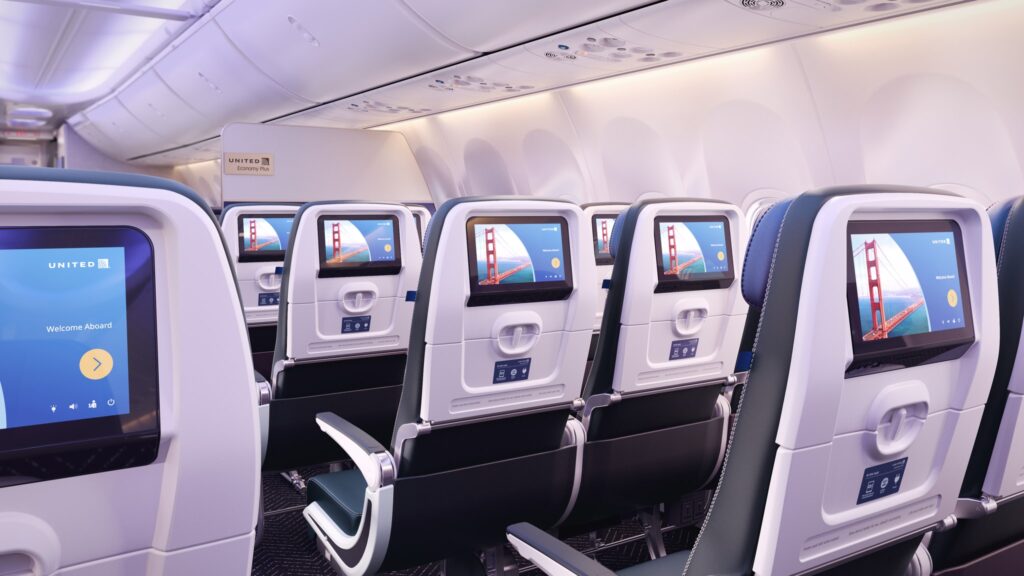
Photo: Courtesy of United
However, they urged airlines and regulators to take further action. “It is critical that the airline industry better account for wheelchairs and meet accessibility standards with improved handling and stowage options of assistive devices; enhanced complaint processing; and increased training of airline contractors to ensure passengers’ bodily safety,” the groups said.
Meanwhile, a version of the Federal Aviation Administration (FAA) reauthorization bill currently pending in Congress would require all airlines to publish cargo hold dimensions to help travelers find flights that can accommodate their wheelchairs.

